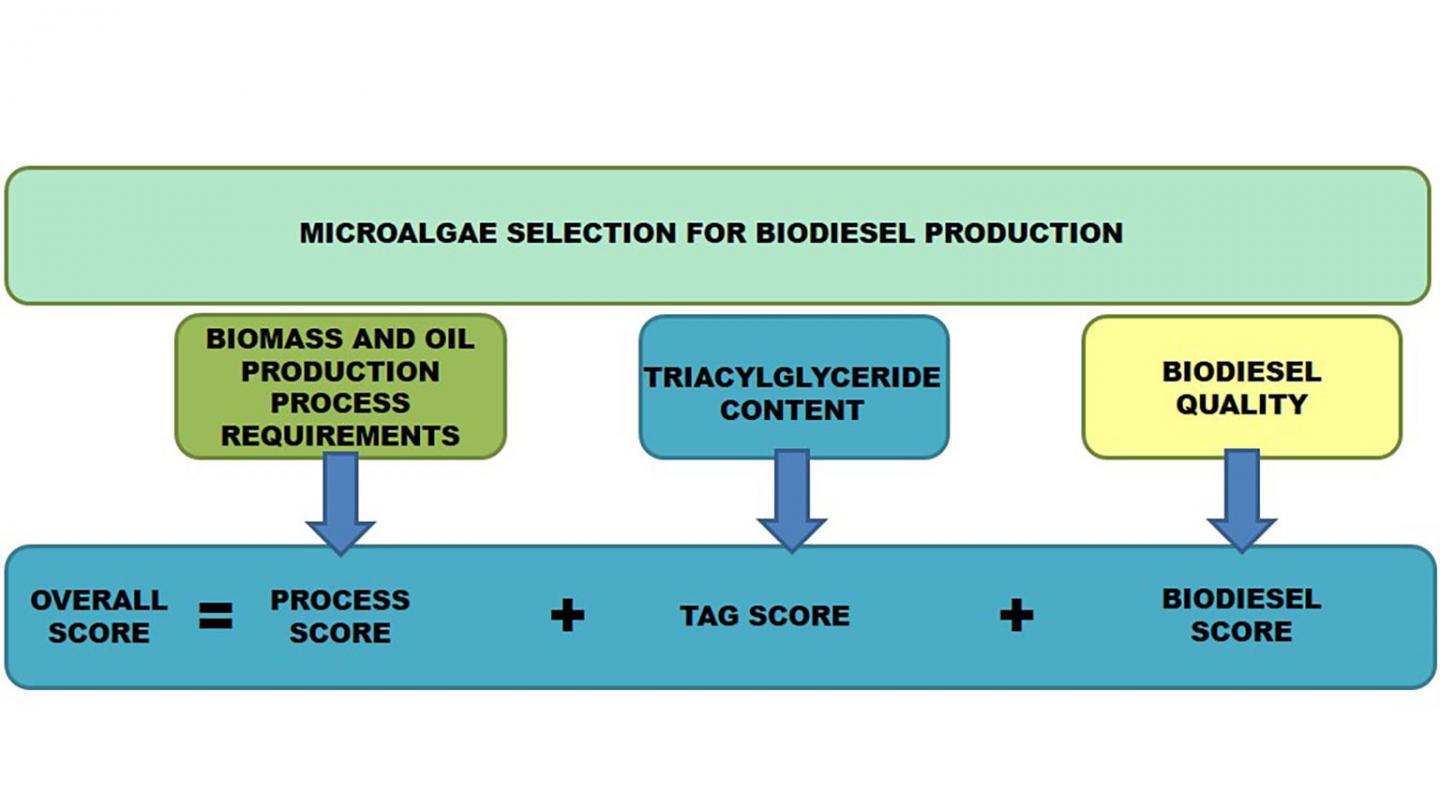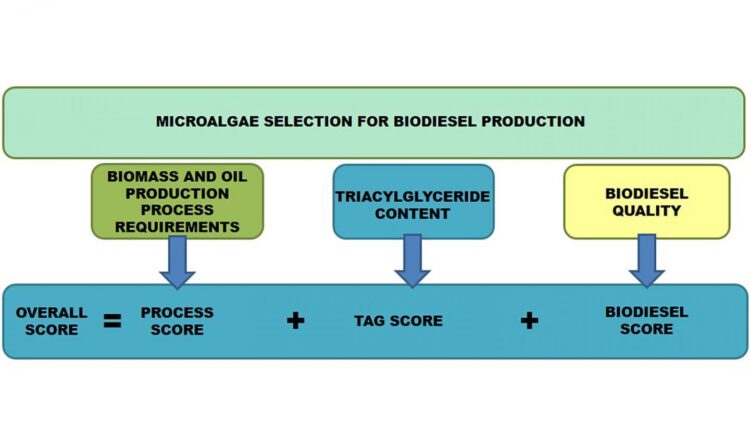An investigation of nine types of microalgae for use as an energy source in commercial biodiesel production based on laboratory-scale data

Credit: Lucas Martín
WASHINGTON, December 1, 2020 — Microalgae are a promising source of energy to replace fossil fuels, as they have several advantages over conventional crops used for commercial biodiesel. Microalgae have a shorter lifecycle and they can be developed in environments unfit for agriculture, so they are not competing with food crops for resources.
In the Journal of Renewable and Sustainable Energy, by AIP Publishing, researchers developed a methodology to analyze the properties of different species to select the best microalgae for use as an energy source by taking into account biological, economic, and environmental aspects.
Despite the advantages of microalgae and the improvements in culture procedures, relatively few species have been studied as biodiesel feedstock. Different properties have been evaluated for the purpose of selecting suitable microalgal species for biodiesel, including growth rate and lipid content, lipid productivity, fatty acid composition, and biodiesel quality. Standard methods for determining these properties, however, are often hampered by the volume of material required for analysis and the need for specific equipment, resulting in high costs.
“Our work makes it possible to perform an analysis of the microalgae based on laboratory-scale data, without the need to go through a pilot-scale experiment,” said author Lucas Martín.
The researchers created an overall score that standardized criteria for potential large-scale cultures, covering biomass and oil production requirements, triacylglyceride content and biodiesel quality. They examined nine types of microalgae and found the native benthic diatoms H. coffeaeformis, Navicula cincta, and N. gregaria appeared to be the most promising species for biodiesel production.
“This tool provides a useful criterion for selecting suitable microalgal species for commercial biodiesel production,” said Martín. “The most surprising thing was the low score obtained by species that are widely studied for the production of biodiesel such as Chlorella vulgaris.”
The researchers also uncovered promising new areas for further research. They found many diatom species have favorable characteristics for sustainable biofuel production and are robustly resistant to extreme environmental conditions. This species, however, has not yet generated a significant degree of scientific interest in the bioenergy field but should be at the forefront of bioprospecting efforts for biodiesel production.
“We think this procedure could be applied to any other bioproducts that are being produced for microalgae, in addition to biodiesel,” said Martín.
###
The article, “A practical tool for selecting microalgal species for biodiesel production,” is authored by L.A. Martín, C.A. Popovich, M.C. Damiani, and P.I. Leonardi. The article will appear in Journal of Renewable and Sustainable Energy on Dec. 1, 2020 (DOI: 10.1063/5.0010668). After that date, it can be accessed at https:/
ABOUT THE JOURNAL
Journal of Renewable and Sustainable Energy is an interdisciplinary journal that publishes across all areas of renewable and sustainable energy relevant to the physical science and engineering communities. Topics covered include solar, wind, biofuels and more, as well as renewable energy integration, energy meteorology and climatology, and renewable resourcing and forecasting. See https:/
Media Contact
Larry Frum
[email protected]
Related Journal Article
http://dx.





